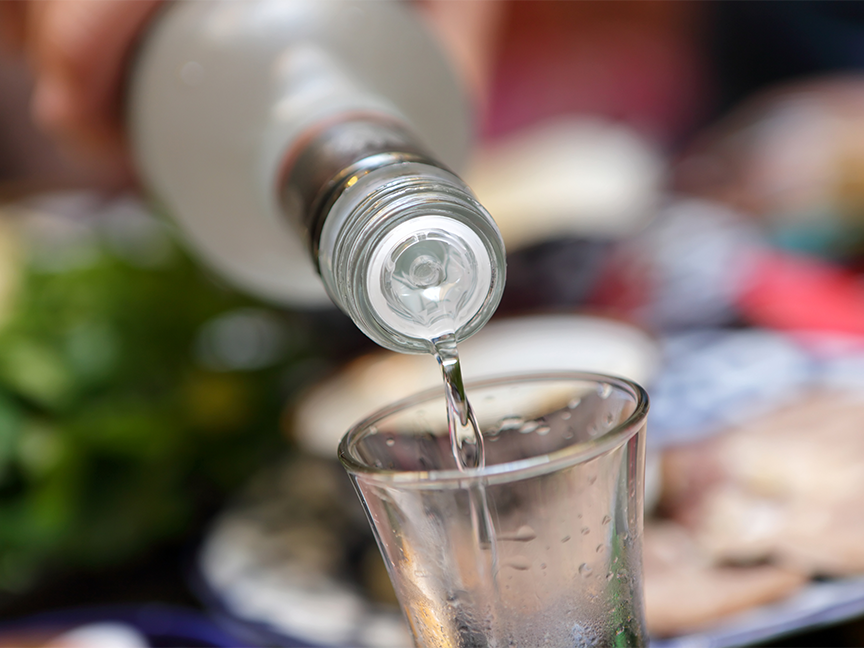
Visit Our Sponsors |
|
|
|
|
|
|
|
|
|
|
|
|
|
|
|
|
|
|
|
|
|
|
|
|
|
|
|
|
|
|
|
|
|
|
|
|
|
|

Russia’s invasion of Ukraine is shifting vodka sales in the U.S., despite the fact that little Russian-made vodka is actually sold outside of Russia.
Some stores or consumers have been dumping brands with Russian-sounding names. But only around 14% of global vodka volume is produced in Russia, and almost all of that is sold in Russia, according to market-research firm IWSR. Worldwide vodka sales totaled $75.7 billion in 2020, according to GlobalData, another research firm.
“Many vodka brands that trace their origin to Russia are actually no longer produced in Russia, so boycotts of those brands do very little to impact Russian businesses,” said Brandy Rand, chief operating officer of the Americas at IWSR Drinks Market Analysis. “In 2020, less than 1% of vodka volume in the U.S. was from brands produced in Russia.”
Supermarket operator Kroger Co. and the Texas Package Stores Association, which represents small operators and chain stores in the state, both said they were removing Russian-made vodkas from their stores, but didn’t return requests for comment on which brands they would include.
Brands like Stolichnaya and Smirnoff may appear to be Russian, but Stoli is made in Latvia by Stoli Group, a unit of Luxembourg-based SPI Group, and Smirnoff is made in Illinois by U.K.-based Diageo Plc, the world’s largest spirits company. Stoli Group is majority-owned by Yuri Shefler, a Russian citizen, but Shefler is also a U.K. and Israeli citizen who was exiled from Russia almost two decades ago and has supported opposition to Russian President Vladimir Putin, according to a Stoli Group spokeswoman.
New Source
While Stoli had sourced some of its ingredients from Russia, it said in a statement this week that its factory has now “ceased to work with Russian suppliers” and will instead use a Slovakian source.
“Stoli has been proudly produced in Latvia since 2000 and I am grateful to Latvia and its people for providing a safe shelter for the company,” Shefler said in an emailed statement. “I was forced into a conflict with Putin’s regime in 2000 and fled Russia under Putin. I have known the truth about this man and have been fighting fearlessly and unconditionally with the regime of this tyrant.”
Both Latvia and Ukraine were once part of the former Soviet Union.
One of the few directly Russian vodkas sold in the U.S. is Russian Standard, which advertises the use of pure glacier water from Lake Ladoga in northwestern Russia and a distillery in St. Petersburg on its website. The Ohio governor’s office on Feb. 26 cited Russian Standard in banning sales of Russian vodka in state-run liquor stores. The company couldn’t immediately be reached for comment.
Consumers are shifting buying habits anyway — not necessarily away from Russian brands, but toward Ukrainian ones.
225% Rise
In the six-day period leading up to March 1, vodkas of Ukrainian origin increased their share of the vodka category by 225% compared with the prior six-day period, according to data from Drizly, an online drinks-ordering platform. Popular brands include Khor, which rose to No. 39 among vodkas on Drizly from No. 54, and Nemiroff, which jumped to No. 83 from No. 143.
Khor is a brand of Global Spirits, which includes Khortytsa Distillery, a Ukraine-based production facility. Nemiroff is made at a distillery in Nemyriv, Ukraine, which has temporarily closed due to the Russian incursion.
Marketers were also vying for the window of opportunity with consumers rethinking their drinking habits. Fuzzy’s Vodka, a small-batch vodka backed by golfer Fuzzy Zoeller and made from Midwestern corn, said it was calling for the “suspension” of the vodka-based cocktail Moscow Mule. Instead, the company said in a statement, people should drink “American Stallions,” a similar ginger-beer-and-lime-based quaff, pledging proceeds would go to the American Red Cross.
RELATED CONTENT
RELATED VIDEOS
Timely, incisive articles delivered directly to your inbox.






